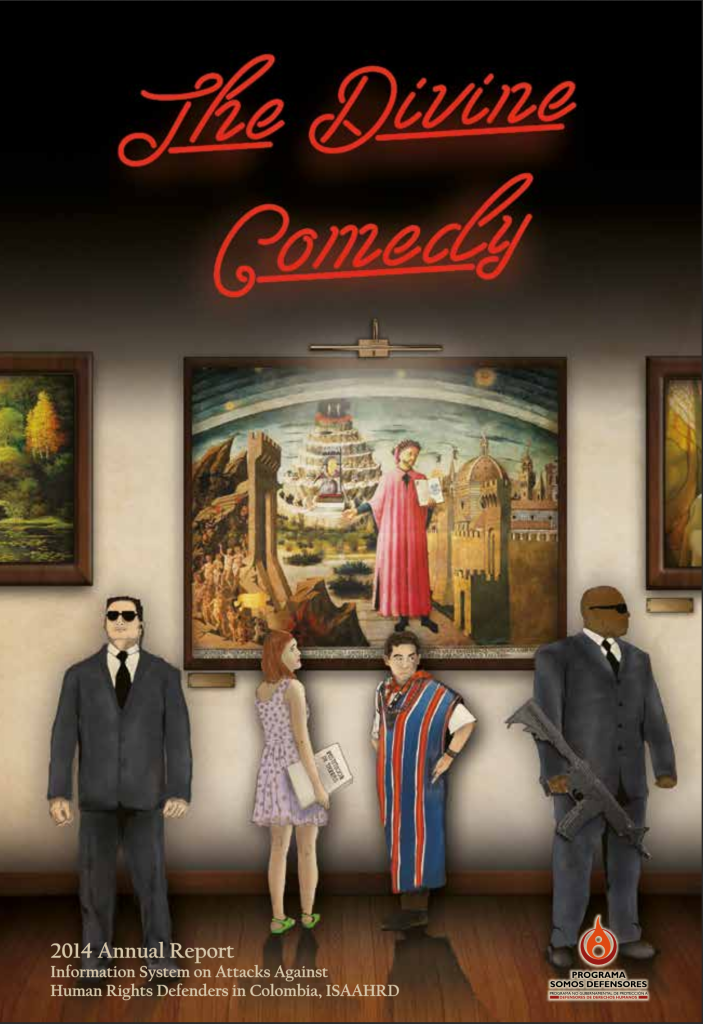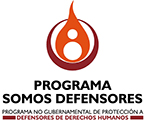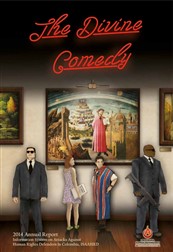
Colombia began on the path to armed conflict for one fundamental reason: it has never been a state that guarantees human rights. Historically, its governing classes excluded the political participation of the sectors that refused to submit themselves to the two traditional hegemonic parties. It did not respect the pacts with the guerillas that had formerly laid down their arms. As soon as they demobilized themselves, their leaders were assassinated by the military forces or police officers, both openly and covertly. The farmers, indigenous, and afro-Colombians were always seen as minority sectors without rights. The budget that remained after the pillaging by the governing class was only invested in large cities, leaving isolated and frontier regions to fend for themselves, demanding that they “organize themselves as best they can”, finally ending up in the hands of the real powers.
Today, six decades later, the national government and the guerillas find themselves in a process of dialogue, with the aim of closing the chapter on armed conflict and to begin along the path towards a democracy based on a State that safeguards human rights.
But closing the chapter on armed conflict involves many challenges, especially from the institutionalism that must make the necessary reforms in order to rectify the causes that triggered it. In addition to this, it is fundamental that the government and the Colombian State be capable of reversing the existing mistrust towards them, owing to their history of incompetence regarding the protection of the lives and integrity of those who believed in their word. This implies from today onwards that the legislation, mechanisms, and institutions responsible for protection function in an appropriate, efficient and ethical way, to allow the commencement of reinforcing a solid foundation for future protection in a post-conflict context. If the national government cannot achieve the consolidation of this perspective through its leadership during the peace process, from then onwards a worrying fissure would already emerge.
In this regard, we must recognize the progress made, the governmental efforts, and the results achieved to protect the largest number of advocates, social leaders, opposing politicians, journalists, trade unionists, and others who are at risk of attack. Nonetheless, varying facts released by media during 2014, and known to be primary sources by the program ‘Somos Defensores’, began to erode the path laid out in terms of protection, creating concern for fundamental and procedural reasons.
The present report was produced based on the monitoring of protection policies and aggressions against leaders and human rights advocates registered by the Information System of the program ‘Somos Defensores’ (Hereon referred to as SIADDHH). It acknowledges the different problems that were taken to the National Unit of Protection (UNP), which was created to substantially assist in guaranteeing the lives and integrity of those who are being threatened or at risk of being attacked.
To account for this panorama, and to try to make this complex topic digestible, we turn to the simile of the poem The Divine Comedy by Dante Alighieri, keeping everything in proportion. Organizing occurrences and gathered information so different in nature was not possible without a well-defined path, just like the one in this extraordinary work of universal literature.
In order to achieve the objective of making the large volume of information comprehensible, this document is made up of three chapters. This first is Hell, divided into 9 circles, each one capturing the different problems faced by the advocates and social leaders when they turn to the UNP in search of protection. Namely; the difficulties in fulfilling the measures of those who already have them in place; the chaos that the institution encountered when it was created due to a lack of resources and administrative disarray; the fatal mistakes made by the UNP in protection; the cancerous corruption that invades the organization; the corporate management of the institutional leadership that permitted the hiding of what was really happening; and finally the collapse of the current model of protection focused on the material, individual, privatized, and outsourced.
The second chapter, Purgatory, gathers the rates of aggressions against leaders and human rights advocates during 2014. As is custom, general profiles of the people who gave their lives undertaking their work are presented as recognition of their sacrifice. Furthermore, a detailed analysis is done of the type of aggression, number of affected by gender, the suspected perpetrators, the regions most affected, and so on. Yet given the exponential growth of the ‘phenomenon’ of making threats using pamphlets or the Internet, a detailed analysis is carried out on these elements.
In the third chapter, Paradise, a few proposals are collected which contribute to our reconsidering of how to improve both the existing protection policies, as well as the worrying topics in the preceding chapters. Given Colombia´s international contractual obligations, in this section recent recommendations made by the Inter-American Commission of Human Rights (CIDH) are revised. Finally, the conclusions of this annual report are presented.
Lastly, and before we set out on this journey, we wish to thank all the organizations belonging to the Platform of Human Rights ´Coordination Colombia Europe United States (CCEEU)´, the ´Movement of Victims of State Crimes (MOVICE)´, and the other organizations for human and social rights, afro-descendants, farmers, youth, indigenous peoples, women, and culture for their truthful and timely information which allowed us to follow up the cases of aggressions. Equally we wish to make a very special thank you to the United Nations Office of the High Commissioner for Human Rights in Colombia (OACNUDH). And, as always, we thank the agencies that cooperated with us such as MISEROEOR, Diakonía Sweden, OXFAM, Intermon, Amnesty International, and Terres de Hommes Schweiz. Also, last but not least we would like to specially acknowledge the Canadian and Norwegian Embassies for their support of our work. All this being said, let us begin on our journey of ‘The Divine Comedy’.

